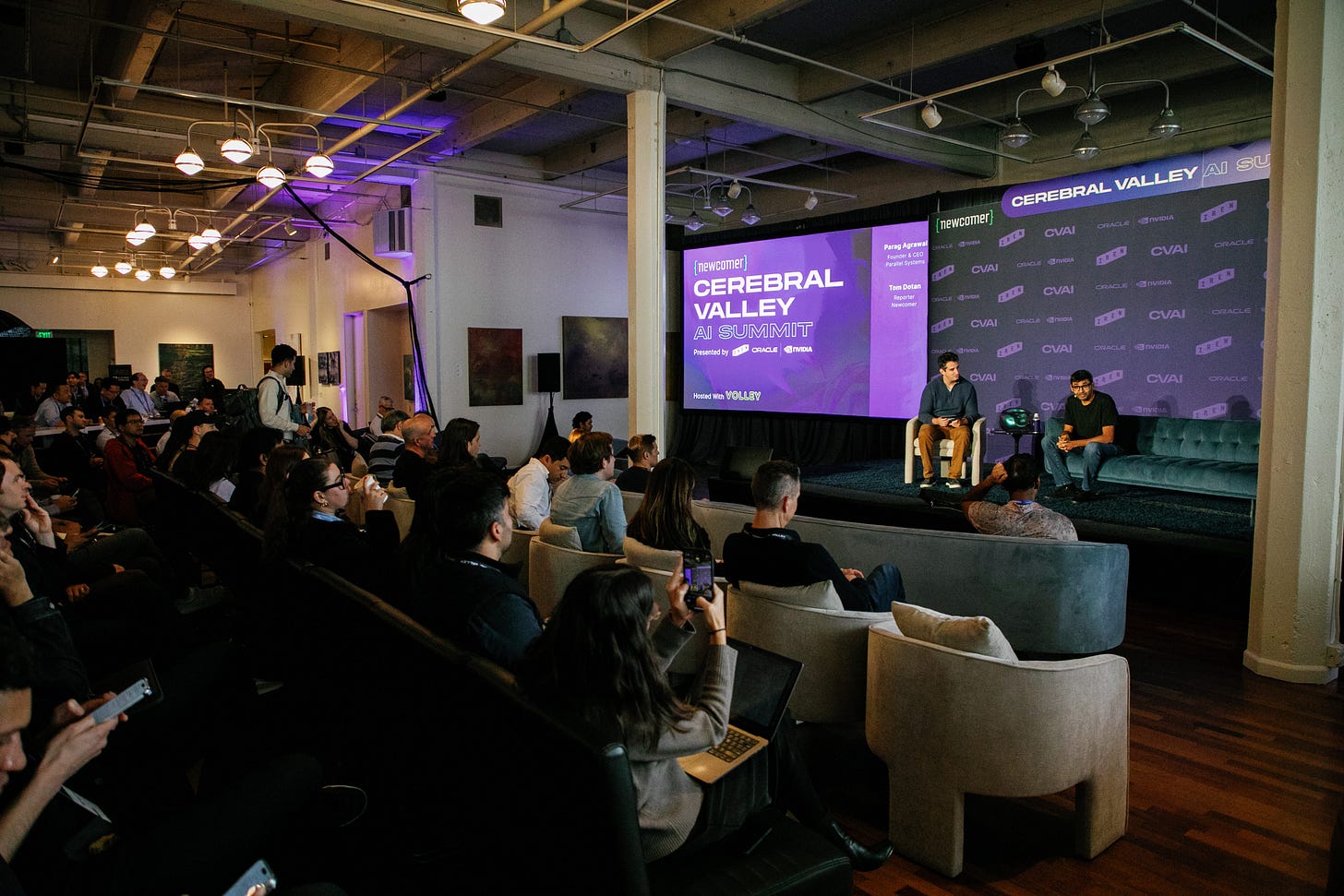What insiders really think about the AI race
Buy Anthropic. Short Perplexity. Notes from this year’s Cerebral Valley Summit. Also: Robinhood's Vlad Tenev this week on ACCESS.
I spent yesterday at Eric Newcomer’s Cerebral Valley Summit in San Francisco. I’ve attended this event for three years in a row because Eric does a great job curating the speakers and the audience, and the conversations are more substantive than a typical industry event.
This year was no exception; however, I found the most interesting part of the day to be when the results of an anonymous audience survey were shared onstage. The more than 300 attendees who participated in the survey primarily consisted of AI company founders, followed by investors, other industry professionals (including product leaders and engineers), and members of the media.
Here are the results of the survey in order of how they were shared onstage:





